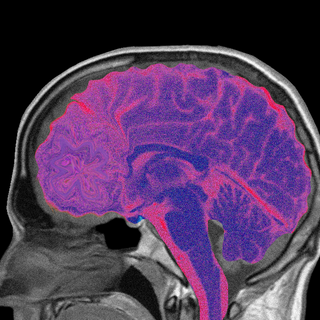“The sort of twee person who thinks swearing is in any way a sign of a lack of education or a lack of verbal interest, is just a fucking lunatic,” writer-actor Stephen Fry had once remarked. The usage of the term “lunatic” might not be a great descriptor of such a person — for multiple reasons — but they are, indeed, “wrong.” Not only could swearing be good for health, alongside being a sign of a good vocabulary, but it also appears to bestow people with stronger powers of persuasion, as a new study has highlighted.
Published in Lingualast month, the findings are based on an analysis of more than 100 academic papers across different disciplines — including linguistics, psychology, and neuroscience — on swearing. Upon perusing past research, the study authors wrote in an editorial on The Conversation, “Swearing was long dismissed as a topic of serious research because it was assumed to be simply a sign of aggression, weak language proficiency or even low intelligence.”
“[Swearing] is undeniably different from — and more powerful than — other forms of language use,” they continued. According to them, swearing “possess[es] an emotional force” that kindles a certain degree of “emotional arousal” in the speaker and the listener alike — perhaps, strengthening the bond between the two and laying a foundation of trust that adds to the speaker’s persuasiveness. “We now have quite a lot of evidence that challenges this view, prompting us to reconsider the nature — and power — of swearing.”
One of these “powers” that people who utter profanities wield, according to this study, is that of credibility. Research shows that testimonies containing swear words are seen as more credible. Psychologists have also previously found that when people cuss while emphasizing a point they’re making, it strengthens the intensity of their argument, bolstering their chances of persuading their listeners. An Italian study, too, had arrived at a similar conclusion: its authors found that if a political candidate’s speech is laden with expletives, they’re more likely to be favored by the public.
As David Stillwell, a lecturer in Big Data Analytics at Cambridge University who co-authored a 2016 study linking profanities with honesty, had noted, “Swearing is often inappropriate, but it can also be evidence that someone is telling you their honest opinion. Just as they aren’t filtering their language to be more palatable, they’re also not filtering their views.” Basically, swearing creates a sense of informality and passion regarding the speaker.
Related on The Swaddle:
From ‘Cunt’ to ‘Careerwoman’: the Many Ways in Which Language Propagates Sexism
In fact, past research does show that swearing can also help people bond better in a group — by serving as a tool to express solidarity, often on shared frustrations. Perhaps, the fact that the act of swearing implies credibility on part of the swearer — by suggesting they’re being honest about their emotions and opinions — aids their trustworthiness, and by extension, their ability to convince their audiences.
“If nothing else, swearing is persuasive because it’s human,” wrote Jeremy Dean, a psychologist. However, according to Dean, it’s important not to go overboard with cussing, though: “It’s likely that stronger or more persistent swearing would adversely affect credibility. But a little damn and blast is more likely to be seen as a genuine display of emotion, which is refreshing.” The bottom line, then, is moderation.
“Under certain circumstances, profanity provides a relief denied even to prayer,” author Mark Twain famously said. Maybe, swearing puts us on a faster track to have our grievances heard by celestial beings, too; or, as is more likely, it simply increases our pain tolerance, as multiple studies — including the present one — have shown.
Not only does swearing boost our pain threshold and pain tolerance, but it also reduces our pain perception, the present researchers noted. Experts believe it’s because swearing can trigger people’s “fight or flight” response, pumping more adrenaline through their bodies and increasing their heart rate. Both can raise one’s pain tolerance on a physiological level by triggering “stress-induced analgesia” or pain relief.
But, here, too, moderation is key. Habitual, heavy swearers, apparently, can’t reap as many pain relief benefits as occasional swearers do. Evidently, then, the advice seems to be: swear, but not too much, and you can conquer both pain and persuasion.




